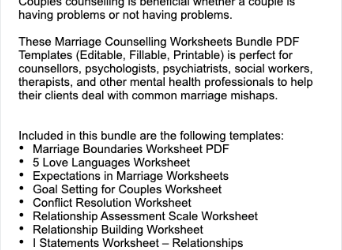
Are you constantly feeling distracted and struggling to stay focused? In today's fast-paced, technology-driven world, it's harder than ever to maintain our attention and concentration. But what if I told you there are proven, science-backed techniques you can use to boost your focus and productivity?
In this video, we'll explore 6 powerful strategies to help you regain control of your attention and achieve a state of deep, effortless focus. Whether you're a student cramming for exams, an entrepreneur trying to grow your business, or simply someone who wants to make the most of your time, these techniques can transform the way you work and live.
1. The Pomodoro Technique
The Pomodoro Technique is a time management method developed by Francesco Cirillo in the late 1980s. The premise is simple: you work in focused 25-minute intervals, called "Pomodoros," followed by short 5-minute breaks. This rhythm of intense focus and regular breaks has been shown to improve concentration, reduce burnout, and boost productivity.
Here's how it works:
1. Choose a task you need to focus on.
2. Set a timer for 25 minutes and work on the task without interruption.
3. When the timer goes off, take a 5-minute break. Get up, stretch, or do a quick activity to recharge.
4. Repeat this cycle 4 times, then take a longer 15-20 minute break.
The Pomodoro Technique works by leveraging the brain's natural tendency to focus better in short bursts. The frequent breaks prevent mental fatigue and allow you to sustain your concentration over longer periods.
2. Mindfulness Meditation
Numerous studies have demonstrated the cognitive benefits of mindfulness meditation, including improved focus, attention, and information processing. By training your mind to stay present and focused on the here and now, you can develop greater control over your attention and reduce the impact of distractions.
To practice mindfulness meditation for focus:
1. Find a quiet, comfortable place to sit.
2. Close your eyes and bring your attention to your breath, noticing the sensation of air moving in and out.
3. Whenever your mind wanders, gently bring your focus back to your breathing.
4. Start with just 5-10 minutes per day and gradually increase the duration as you become more comfortable.
The key is to consistently practice mindfulness meditation, as the benefits compound over time. Over weeks and months, you'll notice your ability to stay present and focused improve significantly.
3. Binaural Beats
Binaural beats are an auditory illusion created by presenting two slightly different frequencies to each ear. This triggers a response in the brain that can induce various states, including improved focus and concentration.
To use binaural beats for focus:
1. Find a binaural beats track on YouTube or a music streaming platform that is designed for concentration.
2. Use high-quality headphones or earbuds to ensure you can clearly hear the different frequencies in each ear.
3. Listen to the binaural beats for 20-30 minutes while you work on a task that requires your full attention.
The science behind binaural beats is still being explored, but research suggests they can help synchronize brain waves and induce a state of deep focus and relaxation. Many people report feeling more alert, productive, and able to concentrate for longer periods when using binaural beats.
4. The 20-20-20 Rule
Staring at screens for extended periods can lead to eye strain, headaches, and decreased focus. The 20-20-20 rule is a simple technique to combat this issue and keep your eyes and mind refreshed.
Here's how it works:
1. Every 20 minutes, look at something 20 feet (6 meters) away for 20 seconds.
2. This brief break from close-up work allows your eyes to relax and refocus, reducing eye fatigue.
3. You can also use this time to stand up, stretch, or do a quick mindfulness exercise to reset your mind.
Incorporating the 20-20-20 rule into your workday can help you maintain better focus and concentration, while also protecting your long-term eye health.
5. Omega-3 Fatty Acids
Numerous studies have linked the consumption of omega-3 fatty acids, found in foods like fatty fish, walnuts, and flaxseeds, to improved cognitive function and focus. These essential nutrients play a crucial role in brain health and can enhance your ability to concentrate and retain information.
To boost your omega-3 intake:
1. Incorporate more omega-3-rich foods into your diet, such as salmon, mackerel, chia seeds, and walnuts.
2. Consider taking a high-quality omega-3 supplement, especially if you don't eat a lot of these foods.
3. Aim for at least 200-300 mg of EPA and DHA (the two most important omega-3s) per day.
By ensuring your brain is well-nourished with these essential fatty acids, you can support your concentration, memory, and overall cognitive performance.
6. Caffeine Cycling
Moderate caffeine consumption can provide a temporary boost in focus and alertness, but relying on it too heavily can lead to diminishing returns and even burnout. To get the most out of caffeine, try implementing a strategic "caffeine cycling" approach.
Here's how it works:
1. Limit your caffeine intake to 200-300 mg per day (about 2-3 cups of coffee).
2. Take regular breaks from caffeine, such as one day off per week or a week-long "caffeine fast" every few months.
3. Time your caffeine consumption to coincide with when you need to be most focused, such as during important work or study sessions.
By cycling your caffeine intake, you can maintain the cognitive benefits without developing a tolerance or experiencing the negative side effects of overconsumption. This allows you to use caffeine as a strategic tool to enhance your focus and productivity.
Putting It All Together
Boosting your focus and concentration doesn't have to be a daunting task. By incorporating these 6 scientifically-backed techniques into your daily routine, you can train your brain to stay on task, minimize distractions, and achieve a state of deep, effortless focus.
Remember, consistency is key. Experiment with these strategies and find the ones that work best for you. Over time, you'll develop a powerful toolkit to help you unlock your full potential and make the most of your time and energy.
So, what are you waiting for? Start implementing these focus-boosting techniques today and watch your productivity and performance soar!

Have you ever noticed the constant stream of thoughts running through your mind? That inner voice that narrates your day, comments on your experiences, and even judges your own actions?
This is called self-talk, and whether you realize it or not, the way you talk to yourself has an incredible impact on your mindset, emotions, and ultimately, the results you get in life.
If your self-talk is negative, filled with doubt, criticism, and limiting beliefs, it will sabotage your efforts and prevent you from reaching your full potential. But if you learn to master positive self-talk, you unlock a powerful force that can transform your life in just 30 days.
The Impact of Negative Self-Talk
Let's look at how negative self-talk can hold you back:
- It erodes your confidence and self-worth, making you feel inadequate or "not good enough."
- It amplifies fears, worries, and anxieties, causing you to avoid risks or new opportunities.
- It fuels procrastination, self-sabotage, and giving up too easily when you face obstacles.
- It clouds your judgment, making it harder to think clearly and make good decisions.
- It drains your motivation and enthusiasm, leaving you feeling stuck, stagnant, or apathetic.
Essentially, negative self-talk is like having a toxic friend constantly putting you down and discouraging you. It's no wonder so many people struggle to achieve their goals when their inner voice is so unsupportive!
The Transformative Power of Positive Self-Talk
Now imagine having an encouraging, uplifting inner voice that believes in you, motivates you, and helps you see the best in yourself and any situation.
This is the power of positive self-talk. By intentionally guiding your inner dialogue in an optimistic, constructive direction, you can:
- Build unshakable confidence and self-belief that propels you through challenges
- Cultivate a growth mindset that views obstacles as opportunities to learn and improve
- Increase motivation, focus, and resilience to follow through on your goals
- Reduce stress, anxiety, and negative emotions that hold you back
- Make better decisions from a place of clarity and emotional intelligence
- Attract more positivity and success into your life through the law of attraction
Positive self-talk is like having a personal life coach in your mind, helping you see your full potential and empowering you to create the life you want.\
The 30-Day Positive Self-Talk Challenge
So how can you start harnessing this incredible power today? Through the 30-Day Positive Self-Talk Challenge!
Here's how it works:
Step 1: Notice Your Current Self-Talk
For the next few days, simply observe the thoughts running through your mind without judgment. Notice how often your inner voice is positive or negative, encouraging or discouraging. This awareness is crucial.
Step 2: Identify Negative Thought Patterns
What negative thoughts or limiting beliefs tend to come up most often? Do you doubt your abilities, catastrophize situations, or beat yourself up over mistakes? Get specific about the unhelpful thought patterns you want to change.
Step 3: Replace Negative Thoughts with Positive Ones
Whenever you notice a negative thought, consciously reframe it into a positive, empowering alternative. If you think "I'll never get this project done," replace it with "I have the skills and determination to complete this step-by-step."
Step 4: Use Positive Self-Talk Routines
In addition to reframing in the moment, create positive self-talk routines for yourself:
- Repeat uplifting affirmations or mantras while looking in the mirror each morning
- Make a habit of celebrating small wins and acknowledging your progress
- Write yourself encouraging notes or texts as motivational reminders
- Listen to positive audio recordings of your own voice during commutes or workouts
Step 5: Be Patient and Persistent
Like any habit, positive self-talk takes consistent practice. There will be days you struggle, but stick with it. The more you reinforce these new thought patterns, the more automatic and natural they'll become.
By following this 30-day challenge, you'll begin to experience profound shifts in your mindset, emotions, and life results. You'll feel more confident, motivated, and resilient in the face of any challenge. Opportunities and positive experiences will seem to show up more effortlessly.
So are you ready to unlock your full potential by mastering the power of positive self-talk? The next 30 days can truly transform your life, but you have to take that first, crucial step.
I'll leave you with this simple but powerful affirmation to start reprogramming your mind today: "I am becoming better every single day."
Repeat it, believe it, and stay tuned for more videos to continue reprogramming your mind for success!
































